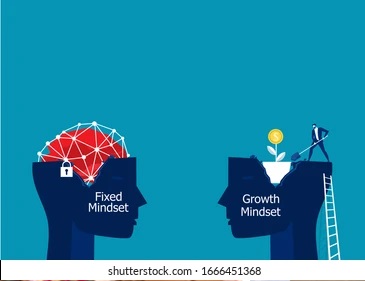
Cultivating growth mindset: Pathway to quality education
In a school setting, encouraging people to stick with a new innovation even as it becomes challenging can sometimes be a daunting task. But why do certain people thrive when facing challenges while others languish?
According to Carol Dweck’s theory on mindset, growth mindset is opposed to fixed mindset, and could explain why some people fulfil their potential and others do not.
Advertisement
With the upheaval surrounding the advent of new policy reforms in Ghana’s education sector, to wit, the No Child Left Behind policy, etc, coupled with the COVID-19 pandemic dragging on, having a growth mindset may be even more critical.
For most of the children admitted to school these days, who cared too little about school and did not pay attention, research shows that teaching growth mindset in school may buffer the negative effects of biased perceptions, curbed aspirations and economic deprivation on students’ academic achievement.
Growth mindset
Can a growth mindset then be cultivated? Carol Dweck, a Psychology Professor at Stanford University, explains that students’ mindsets —how they perceive their abilities — plays a key role in their motivation and achievement. If you can change a student’s mindset, you can boost their achievement.
Dweck also explains that a growth mindset is different from having a positive outlook or being open-minded.
While these qualities are definitely important, a growth mindset is not a disposition, but rather a constantly evolving concept that is often a result of our experiences.
She is also clear that a growth mindset is not the result of praising effort; it is the result of emphasising progress and seeing challenges not as an end, but instead an opportunity to learn and keep trying.
It means that when we see a roadblock, we don’t turn around—we find out how to get around it.
Ability
Students can be made to understand that ability can change as a result of effort, perseverance and practice. Students with growth mindset believe that Mathematics is hard, but if I keep trying, I can get better at it.
Many teachers encourage growth mindset in their students without making it explicit. But that can be a powerful tool to improve student outcomes.
Tackling low academic performance in our schools means that today’s teacher requires dynamism and up to scratch approach in embracing the day-to-day challenges that arises on the job; having a growth mindset may help promote this kind of resilience.
The benefits of cultivating a growth mindset in the corporate world cannot be overstated. The adoption of a growth mindset at Microsoft is resulting in more-innovative ideas and products — and employees are developing leadership skills in unexpected places, at every level.
This is according to an article published by Harvard Business Review, co-authored by Carol Dweck and Kathleen Hogan, Chief People Officer and Executive Vice President of Human Resources at Microsoft.
Novel
As the world continues to globalise, Ghana needs novel solutions to new and old problems, and these solutions will be driven, in large part, by people with deep interests who also draw connections across disciplines.
Encouraging our schools to adopt a growth mindset may help spark that process.
These larger potential pay-offs for vulnerable students who are at the greatest risk of poor performance opens an avenue for designing policies and interventions, promoting equity and bridging the performance gap between different groups of students
The writer is a teacher and Co-Founder/Director of Africawide Literacy Initiative. E-mail:[email protected]




